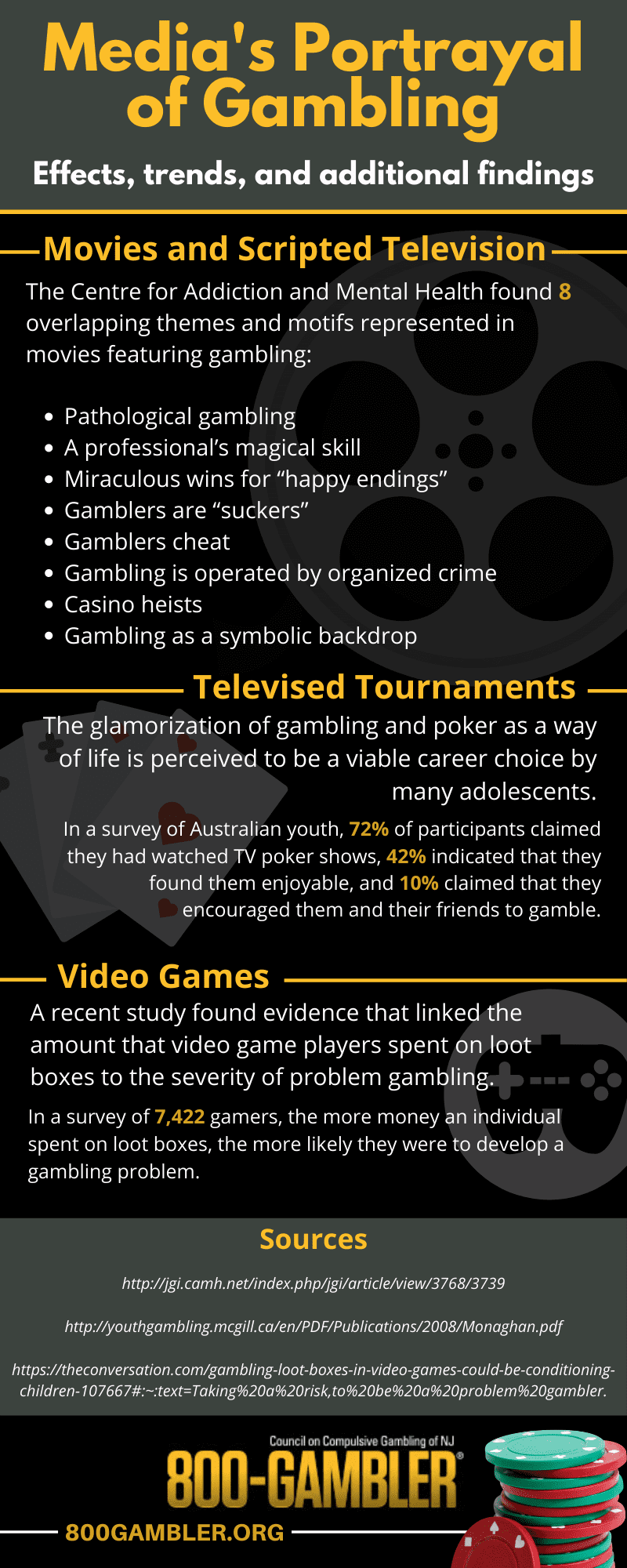Young individuals are currently growing up in a culture where gambling is not only legal, but easily accessible and widely supported as well. While minors are largely restricted from regulated gambling, the perception of gambling as a harmless entertainment activity is a gross understatement. Gambling is portrayed in the media often in inaccurate, hyperbolic fashions that normalize gambling and, in turn, may encourage younger people to participate or at-risk individuals to gamble again. While movies and scripted television programs propel the problem gambling boat forward, fiction is just one rudder. Televised gambling tournaments, apps, video games, advertisements, and other forms of media contribute.
Gambling is often showcased in the media as providing significant social and economic benefits while shying away from the drawbacks of participating in an unhealthy way. Thus, the depiction of gambling in society requires a thorough examination to present a balanced, more realistic portrayal of the odds of winning and risk associated with gambling to reduce the emergence of gambling problems.
Glitz, Glamour, and Gambling: Media’s High-Stakes Influence
We’ll focus on three distinct pillars of entertainment: movies/scripted television, televised tournaments, and video games:

Movies and Scripted Television
While regulation is strictly enforced to limit children’s and adolescents’ exposure to violent or sexual behavior, few guidelines are established that protect youth from the depiction of gambling in the media. An empirical evaluation of films released within the past two decades revealed that gambling was largely portrayed as overwhelmingly positive or very negative, contradicting the founded notion that problem gambling behaviors are often exhibited in less-extreme ways.
Televised Tournaments
There are innumerable worldwide televised poker tournaments and games that feature celebrities wagering high stakes, as well as previously unknown individuals raking in large sums and suddenly becoming famous. These champions and professional gamblers have taken on celebrity status, and promoters have utilized them in advertisements promoting gambling products and opportunities (most noticeable on Internet wager sites).
Video Games
In recent years, the dangers stem from a feature that has become embedded in most popular video games: loot boxes. These virtual boxes are available to purchase with either real or pretend money with the potential for obtaining virtual weapons or other aids for gameplay. This process, facilitated by “microtransactions,” can take a true financial toll on a child or other player due to repeated purchases and staggering bundle buys. Keith Whyte (Executive Director of the National Association On Problem Gambling) cautioned that, for some players, the lure of loot boxes is a path to problem gambling. Young men — boys, in particular — are at risk, according to Mr. Whyte.
Suspect You Have a Gambling Problem? Call Our Helpline Today!
If you or someone close to you is seeking help with problem gambling, know that support, treatment, and hope are just one call away. Contact 800-GAMBLER today.
Sources:
http://youthgambling.mcgill.ca/en/PDF/Publications/2008/Monaghan.pdf



